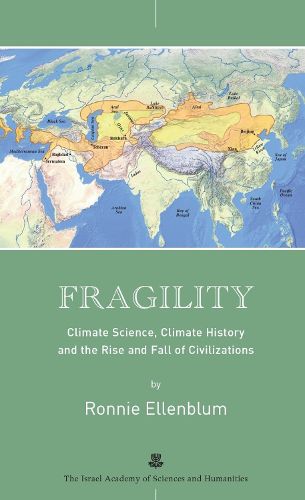Readings Newsletter
Become a Readings Member to make your shopping experience even easier.
Sign in or sign up for free!
You’re not far away from qualifying for FREE standard shipping within Australia
You’ve qualified for FREE standard shipping within Australia
The cart is loading…






Perhaps never before has the potential impact of climate anomalies upon the fate of human societies and civilizations been in as sharp and as global a focus as it is today. Yet, the vulnerability to climate anomalies of the food supply upon which a society depends has accompanied humankind since its inception. The "fragility predicament," as Ronnie Ellenblum terms it in this ground-breaking book, has influenced the rise and fall of civilizations throughout history. Nevertheless, for the better part of the last century, most humanistic studies of history and society have drawn back from examining the historical impact of climate events. In the book's first part, Ellenblum traces the course of climate science from its beginnings to discover the roots of this diffidence, which he discerns not only in humanistic scholars' unfamiliarity with the methods used in experimental science, but also in the dangerous turn of the social sciences toward eugenic theories in the decades before World War II. Calling for a new meeting of humanistic and experimental research, Ellenblum shows just how productive and critical such a meeting might be. Magisterially juxtaposing the accounts of medieval and ancient chroniclers with data drawn from modern climate studies, he points to how climate factors influenced the rise, flourishing, decline and collapse of the great empires of the past. Only in this way, Ellenblum concludes, can we begin to imagine how, and how quickly, climate change might influence our own future - and prepare for the upheavals it is likely to bring.
$9.00 standard shipping within Australia
FREE standard shipping within Australia for orders over $100.00
Express & International shipping calculated at checkout
Perhaps never before has the potential impact of climate anomalies upon the fate of human societies and civilizations been in as sharp and as global a focus as it is today. Yet, the vulnerability to climate anomalies of the food supply upon which a society depends has accompanied humankind since its inception. The "fragility predicament," as Ronnie Ellenblum terms it in this ground-breaking book, has influenced the rise and fall of civilizations throughout history. Nevertheless, for the better part of the last century, most humanistic studies of history and society have drawn back from examining the historical impact of climate events. In the book's first part, Ellenblum traces the course of climate science from its beginnings to discover the roots of this diffidence, which he discerns not only in humanistic scholars' unfamiliarity with the methods used in experimental science, but also in the dangerous turn of the social sciences toward eugenic theories in the decades before World War II. Calling for a new meeting of humanistic and experimental research, Ellenblum shows just how productive and critical such a meeting might be. Magisterially juxtaposing the accounts of medieval and ancient chroniclers with data drawn from modern climate studies, he points to how climate factors influenced the rise, flourishing, decline and collapse of the great empires of the past. Only in this way, Ellenblum concludes, can we begin to imagine how, and how quickly, climate change might influence our own future - and prepare for the upheavals it is likely to bring.